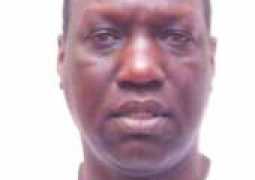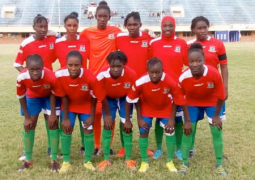
A three-member panel of judges of the Gambia Court of Appeal headed by Justice Emanuel Fagbenle, and including Justice Sallah and Justice Awa Bah yesterday said Justice Wowo’s appeal against his conviction by the High Court in Banjul lacked merit, and dismissed the appeal.
Readers would recall that the Court of Appeal dismissed Justice Wowo’s appeal on 18 December 2014 and adjourned to 12 January to give reasons why it was dismissed.
Giving the reasons of the appeal court, Justice Fagbenle said on 18 December 2014 the Court of Appeal gave a ruling on the appeal filed by the appellant on the trial and his conviction.
He said the appellant was charged together with another accused person with abuse of office, breach of trust, obstruction, defeating the course of justice, conspiracy, and giving false information, among others.
The accused person, now the appellant, denied all the charges against him.
During the course of the trial, the prosecution called several witnesses, and at the closure of the prosecution’s case, the appellant made a no-case-to-answer submission, which was dismissed by the court.
He said the grounds of appeal were numbered 1 to 16, and the question was whether the appeal was competently before the court.
Justice Fagbenle stated that grounds 6 to 14 have nothing to do with the jurisdiction of the high court.
He said the no-case submission should be upheld when there was no substantial evidence before the court to grant a conviction.
The prosecution witnesses had made a prima facie case against the appellant, and the burden of proof depended on the prosecution, he continued.
The prosecution had to prove its case beyond all reasonable doubt.
Where the court would conclude that the prosecution had no case to grant a conviction, the no-case submission should hold, but whereas the prosecution had laid a prima facie case against the accused, now the appellant, the no-case submission should be dismissed, he added.
The appellant was the president of the Court of Appeal, and at the time that he was writing a letter to the NIA, he was not the acting-chief Justice as he stated in the letter, the appeal judge stated.
The appellant stated in the letter that he was the acting chief justice, without being formally appointed by the President.
The President has the capacity to appoint the appellant as the acting chief Justice, said Justice Fagbenle.
He said since the defence did not succeed in discrediting the prosecution witnesses, he held that the no-case submission was invalid and should be dismissed.
On the issue of the trial judge not excusing himself from the case, the records of proceedings showed that the trial judge did justice to the case, Justice Fagbenle added.
The appellant did not show any proof on record that the trial judge erred in law, he said.
The appellant felt that the trial judge was biased against him, and asked the trial judge to excuse himself from the case.
“The court will not rely on evidence that is not before it, not only by submission, and it is therefore dismissed,” he said.
He said all the witnesses and the exhibits tendered by the prosecution laid a prima facie case against the appellant, which was why the appellant was asked to enter into his defence.
There was no evidence that showed that the appellant was appointed as the acting chief justice, Justice Fagbenle went on.
“It is my view that all the allegations on the grounds of appeal are rendered invalid, and the appeal is dismissed for lack of merit,” he declared.
Justice Sallah and Justice Awa Bah, both panel members, agreed with the reasons and held that the appeal lacked merit, hence it be dismissed; and they upheld the conviction of the high court.



